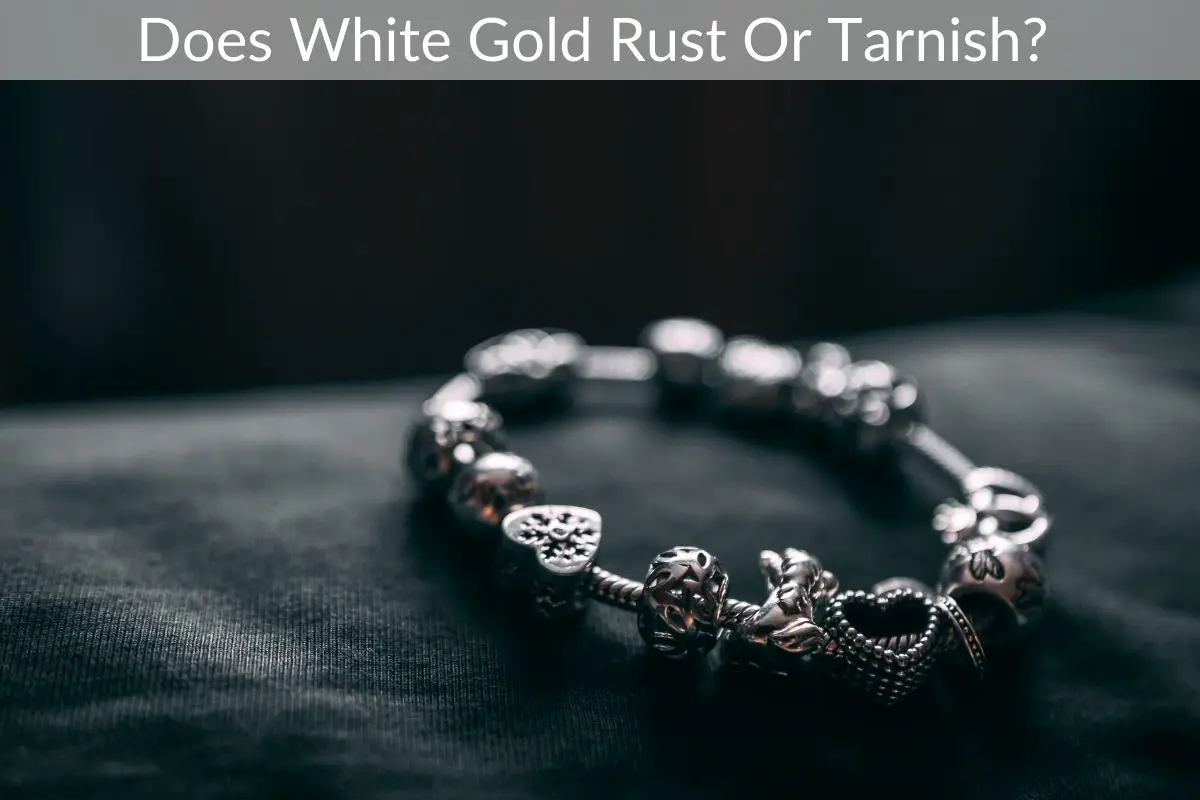Table of Contents
White Gold is a metal with greater malleability than Platinum, making it a preferred material for artisans. It doesn’t rust, tarnish or corrode. For buyers, it’s a significant investment as it’s unlikely to lose its value and doesn’t get ruined due to exposure to air.
*This post may contain affiliate links. As an Amazon Associate we earn from qualifying purchases.
If you buy jewelry made out of white gold, you don’t have to do a lot to maintain it. It’s unlikely to turn black even after years of wear. Apart from aesthetic advantages, White Gold is also less expensive than something like Platinum which can cost you a pretty penny.
To see the most popular white gold jewelry just click here.
How Long Does White Gold Last?
White Gold is a valuable, aesthetically-pleasing material. If you’ve just bought a piece of jewelry made from white gold, you may be wondering how long it will last. Generally, white gold will keep its shine for about 1-3 years before it requires replating. However, other factors will affect how long the white gold will last. Before you buy any article of white gold, you should check certain conditions.
- Is it Plated?
- If plated, how thick is the plating?
- How pure is the gold?
- What kind of care does it require?
What Can Damage White Gold?
Now that we know white gold doesn’t tarnish quickly, we must look into certain things that can damage white gold. You can have certain personal habits and daily wear that can harm the overall white gold jewelry’s lifespan. Plating the article with Rhodium can make it more durable. However, the article can get damaged even after plating.
All objects made with metals require you to take measures to maintain a certain level of care. Here are a few things you should avoid so to ensure White Gold maintains its shine for longer.
1. Don’t Bathe With White Gold
You can take a shower and bathe with white gold. However, just because you can do something doesn’t mean you should do it. Unlike other jewelry, white gold jewelry doesn’t rust to leave some pigment on your skin. However, if you continue to do this over time, the piece of jewelry will lose its sheen. It would be best if you left your jewelry on the nightstand, especially when you’re planning on soaking in the tub. If you leave it on for one shower, that’s fine. However, if you continue to do this, it may create problems.
2. Don’t Swim With White Gold
The level of tarnishing to white gold jewelry caused by swimming while wearing it may depend on where you’re swimming. If you’re swimming in a pool with Chlorine, the level of care you’ll have to take will be different than when you’re swimming in the salty sea.
Swimming pools generally have vast amounts of Chlorine. Chlorine is a chemical that can be highly corrosive. If your white gold jewelry has Rhodium plating on it, you’ll find that it gets deteriorates very quickly because of the potency of Chlorine. If you only swim in your swimming pool once wearing your jewelry, the harm shouldn’t be that great. However, if you do it consistently, you may see a drop in the level of shine on your jewelry.
If your jewelry is not plated, the problems can be far worse. Chlorine can find itself getting into the alloys that make up your white gold jewelry and create bubbles in its base. It can make your ring more brittle to the touch, and any settings you may have will fall off.
If your jewelry is in constant contact with chlorinated pools, it can turn black. Saltwater from the sea doesn’t affect the jewelry quite as much. However, it has Chlorine, too, which can affect you over time.
3. Avoid Sweating in the jewelry
If you’re someone who likes to maintain an active lifestyle, that’s wonderful. However, every time you go to the gym, you want to ensure you’re leaving your stellar white gold jewelry at home. When you exercise, you’re likely to be releasing a lot of moisture, salt, and sebum from your skin.
If you’re wearing an article like a necklace, a ring, or even studs, they can collect a lot of dirt and moisture in the crevices.
It would help if you also tried not to go to bed with these articles, as that can cause dirt and grime to build up and cause the plating to break down.
4. Avoid Cleaning with Harsh Products
After a few days of wearing your jewelry, you may think that it’s losing some of its shine and want to clean it up. You can clean it as it helps your jewelry feel excellent and new. However, you have to be careful with the jewelry.
You don’t want to clean it with extra harsh products that create wear and break it down. You shouldn’t use any type of harsh chemicals like window cleaner or detergent. You also don’t want to scrub the product too much.
The best way to go about it is by soaking the jewelry in water and cleaning it with a gentle cloth.
5. Don’t Overpolish
You don’t want to overpolish your jewelry, as this may cause some abrasions that may harm the glitz and glam of your jewelry.
Advantages of White Gold
- It is malleable
- It goes well with diamonds and other precious stones
- It is less expensive than Platinum
- It doesn’t tarnish or rust
Disadvantages of White Gold
- It can become scratched easily
- The Rhodium Plating can wear away, and you will have to replate.
- It may not be suitable for people with metal allergies
Final Thoughts
White Gold is a valuable metal that doesn’t tarnish or rust. However, it would help if you took outstanding care of it. You don’t want to wear it in swimming pools or while exercising so you can maintain its sheen.

